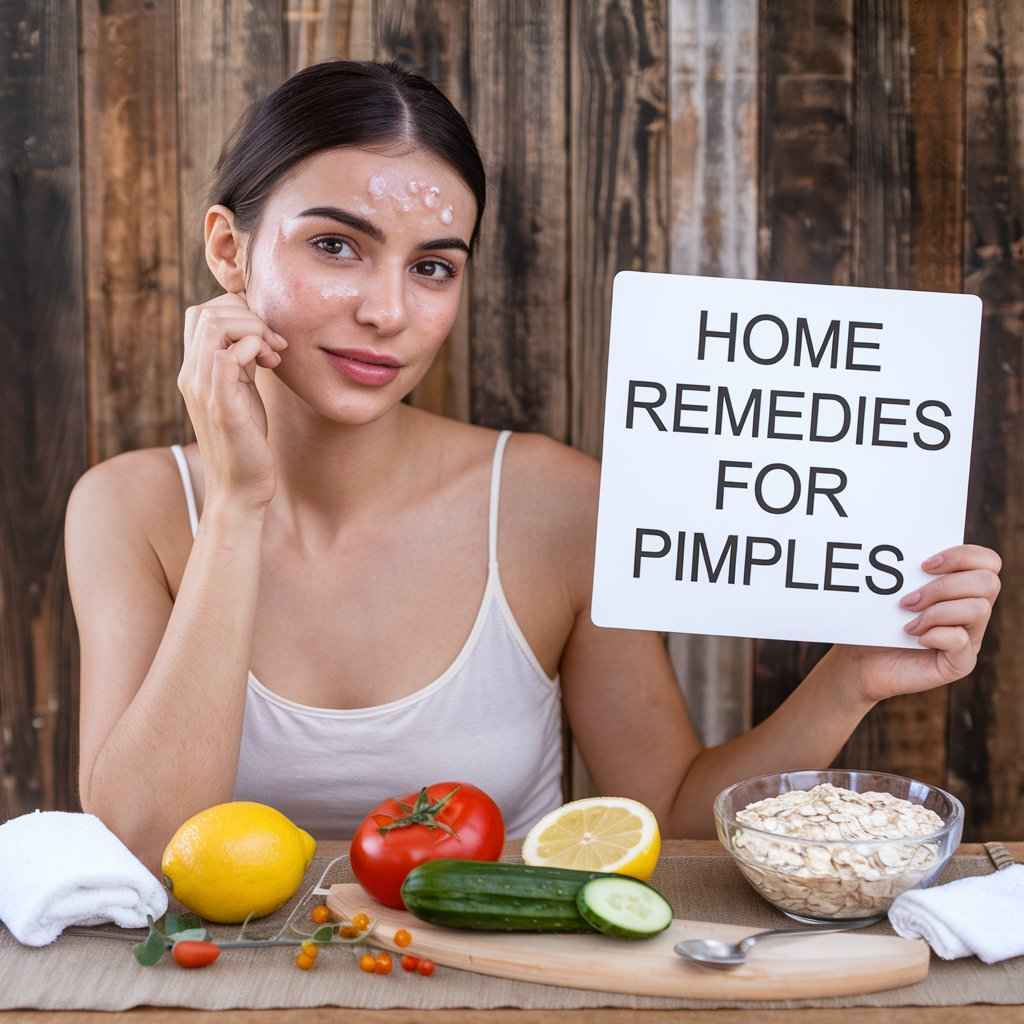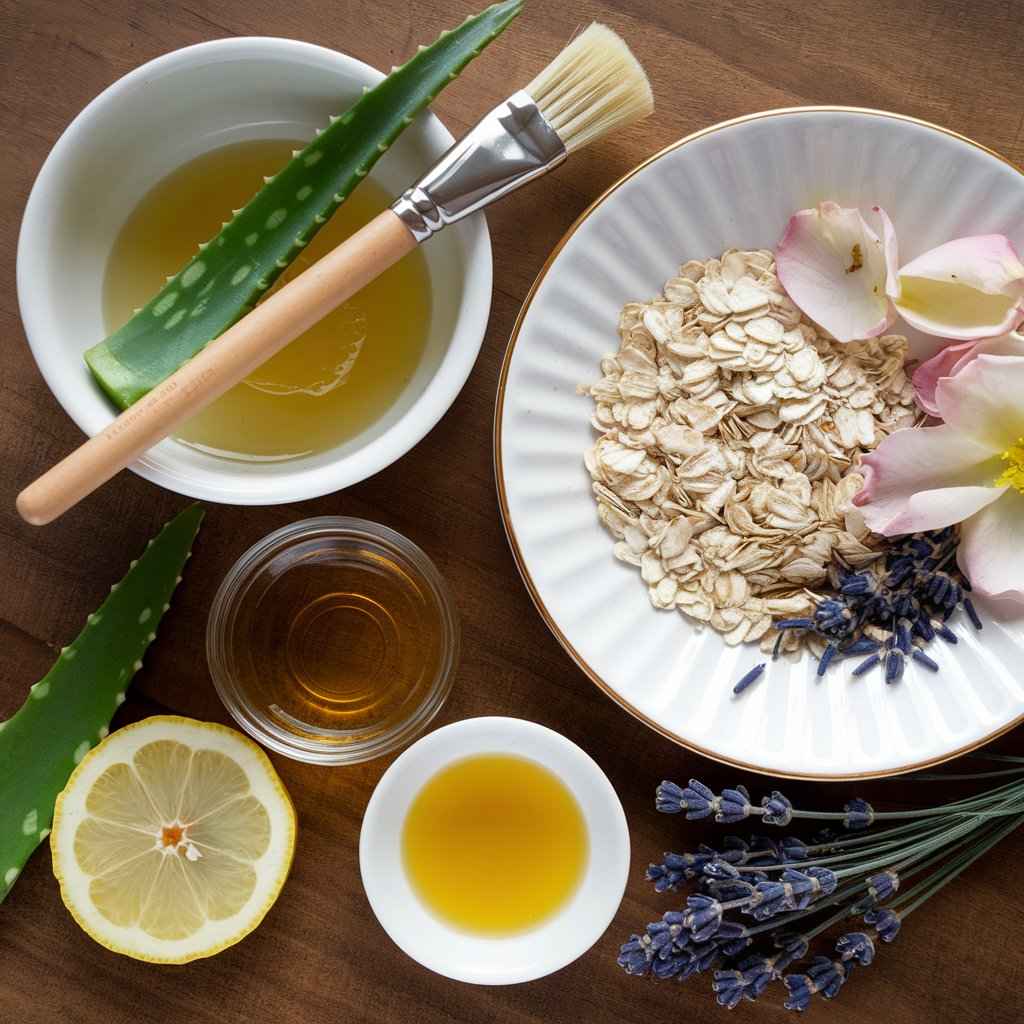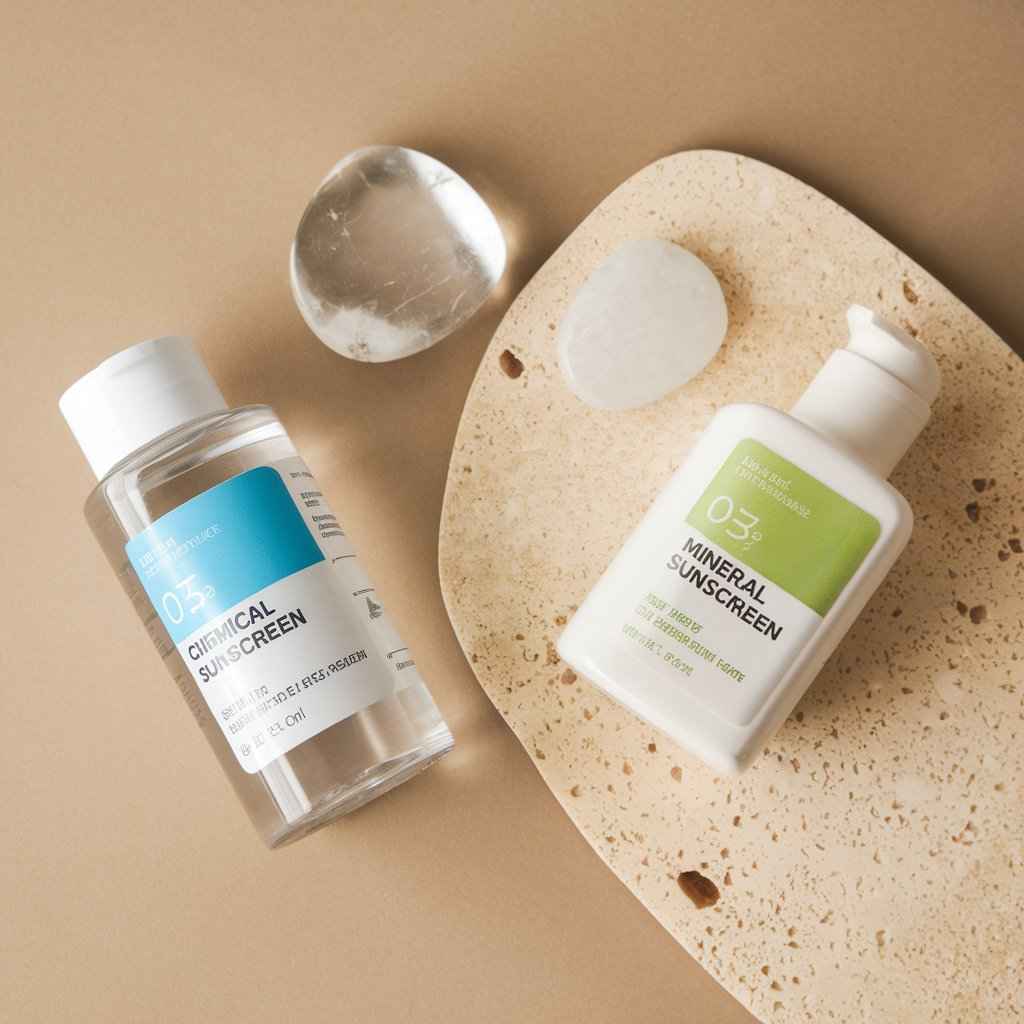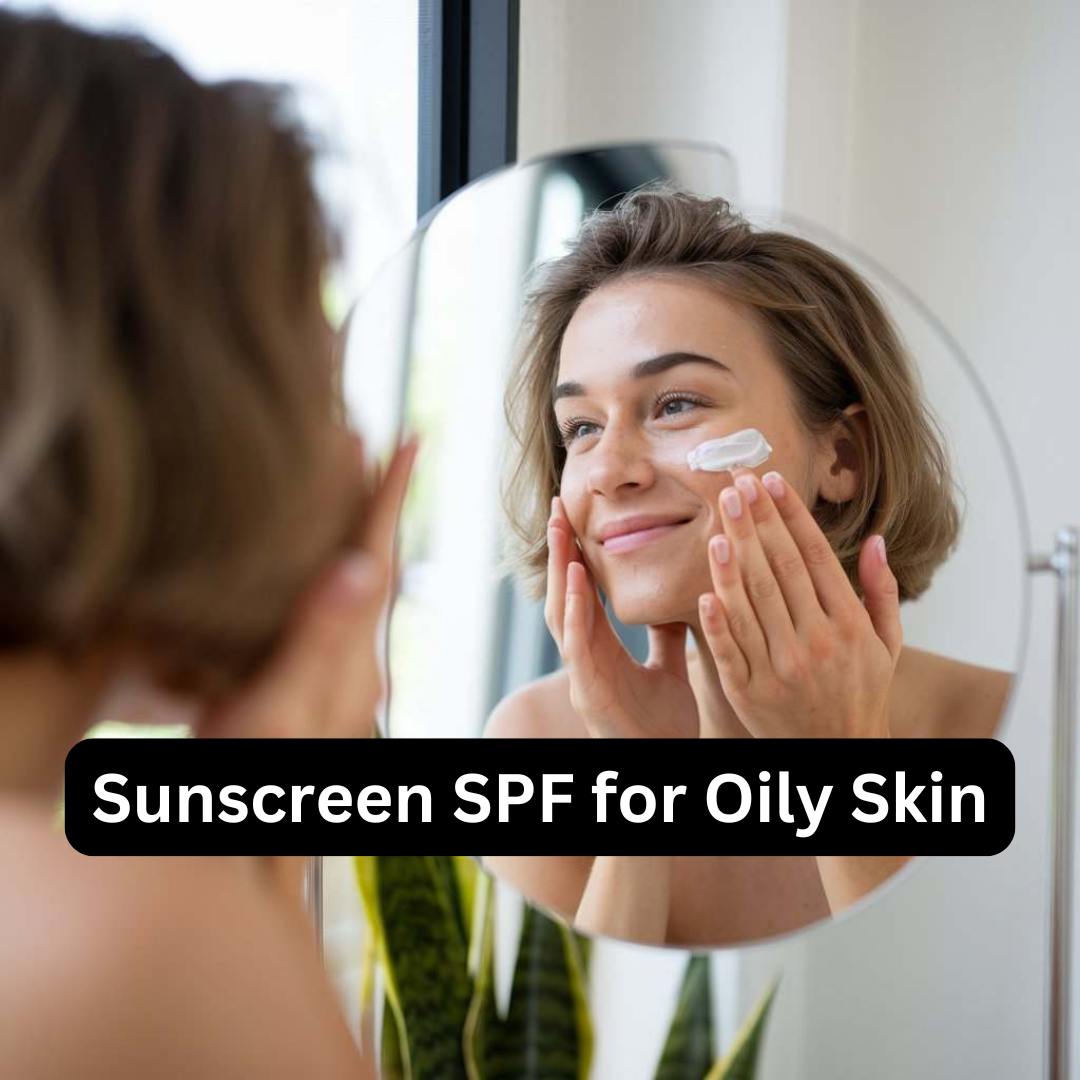Home remedies for pimples are a natural and cost-effective way to tackle this common skin concern and achieve glowing skin. Pimples occur when the pores of your skin become clogged with oil, dead skin cells, and bacteria, leading to inflammation and infection. While there are many over-the-counter treatments available, home remedies offer a simple and effective alternative. In this article, we’ll explore some of these remedies to help you achieve clearer, glowing skin.
Table of Contents:
Top 10 Home Remedies for Pimples: Simple and Effective Solutions:
What is pimple?
A pimple is a small, inflamed bump on the skin that occurs when hair follicles become clogged with oil, dead skin cells, and bacteria. This clogging leads to swelling and redness, which can result in the formation of a pimple. Pimples are a common symptom of acne, a skin condition that affects the pores and can vary in severity from mild to severe. For those seeking natural solutions, home remedies for pimples can offer effective ways to manage and reduce these skin concerns.
What Causes Pimples?
Understanding the root causes of pimples is essential for effective treatment with home remedies for pimples. Pimples are primarily caused by:
- Excess Sebum Production: Sebum is an oily substance produced by the sebaceous glands to keep the skin moisturized. However, excessive sebum can clog pores and lead to pimples.
- Hormonal Changes: Hormonal fluctuations, especially during puberty, menstruation, or pregnancy, can increase oil production and lead to breakouts.
- Bacterial Growth: The bacteria Propionibacterium acnes (P. acnes) naturally reside on the skin. When pores are clogged, these bacteria multiply, causing inflammation and pimples.
- Diet and Lifestyle: Poor diet, lack of sleep, and high-stress levels can also contribute to the development of pimples.
By addressing these factors with appropriate home remedies for pimples, you can help manage and reduce breakouts effectively.
Simple Home Remedies for Pimples
Below are some tried-and-tested home remedies that can help reduce pimples and prevent future breakouts.
1. Tea Tree Oil
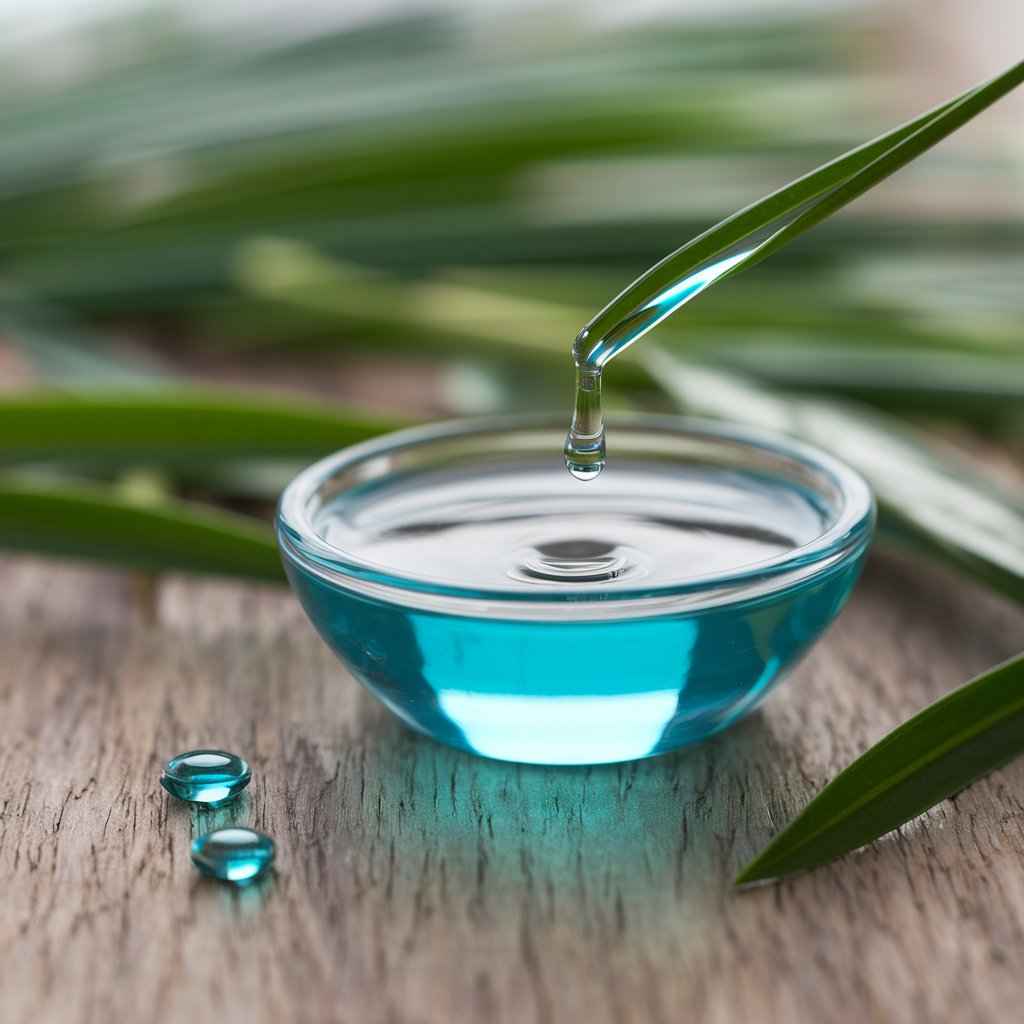
Tea tree oil is a powerful natural antiseptic that is often used in home remedies for pimples. It can help reduce the bacteria that cause pimples and has anti-inflammatory properties that can reduce the redness and swelling of pimples.
How to Use:
- Dilute a few drops of tea tree oil with a carrier oil like coconut or jojoba oil.
- Apply the mixture directly to the pimple using a cotton swab.
- Leave it on for a few hours or overnight, then rinse with warm water.
Note: Always perform a patch test before using tea tree oil, as it can cause irritation in some individuals.
2. Aloe Vera
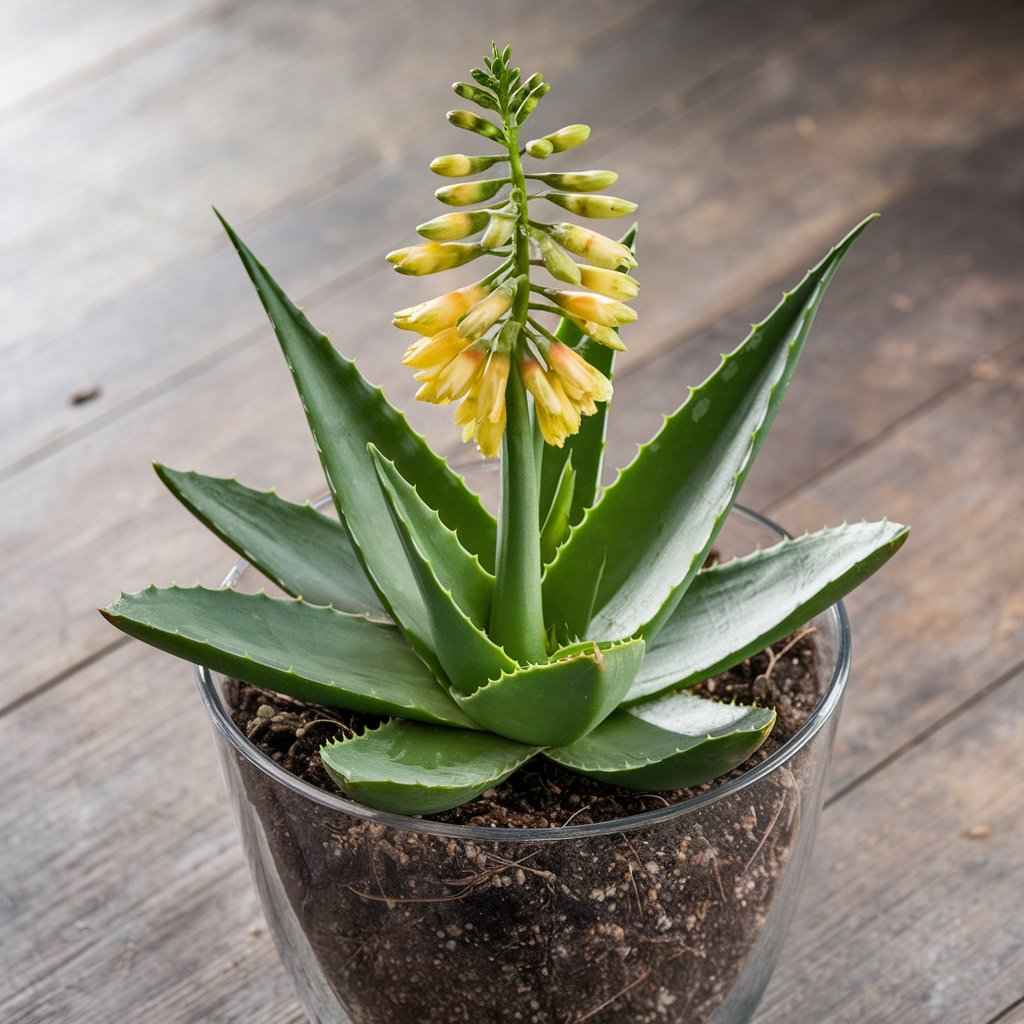
Aloe vera is well-known for its soothing and healing properties, making it a popular choice in home remedies for pimples. It can reduce inflammation, speed up the healing process of pimples, and even prevent scarring.
How to Use:
- Extract fresh aloe vera gel from the plant or use store-bought gel with no added chemicals.
- Apply the gel directly to the affected area.
- Leave it on for 20-30 minutes, then rinse with lukewarm water.
Tip: You can also mix aloe vera gel with a few drops of tea tree oil for enhanced benefits.
3. Honey and Cinnamon Mask
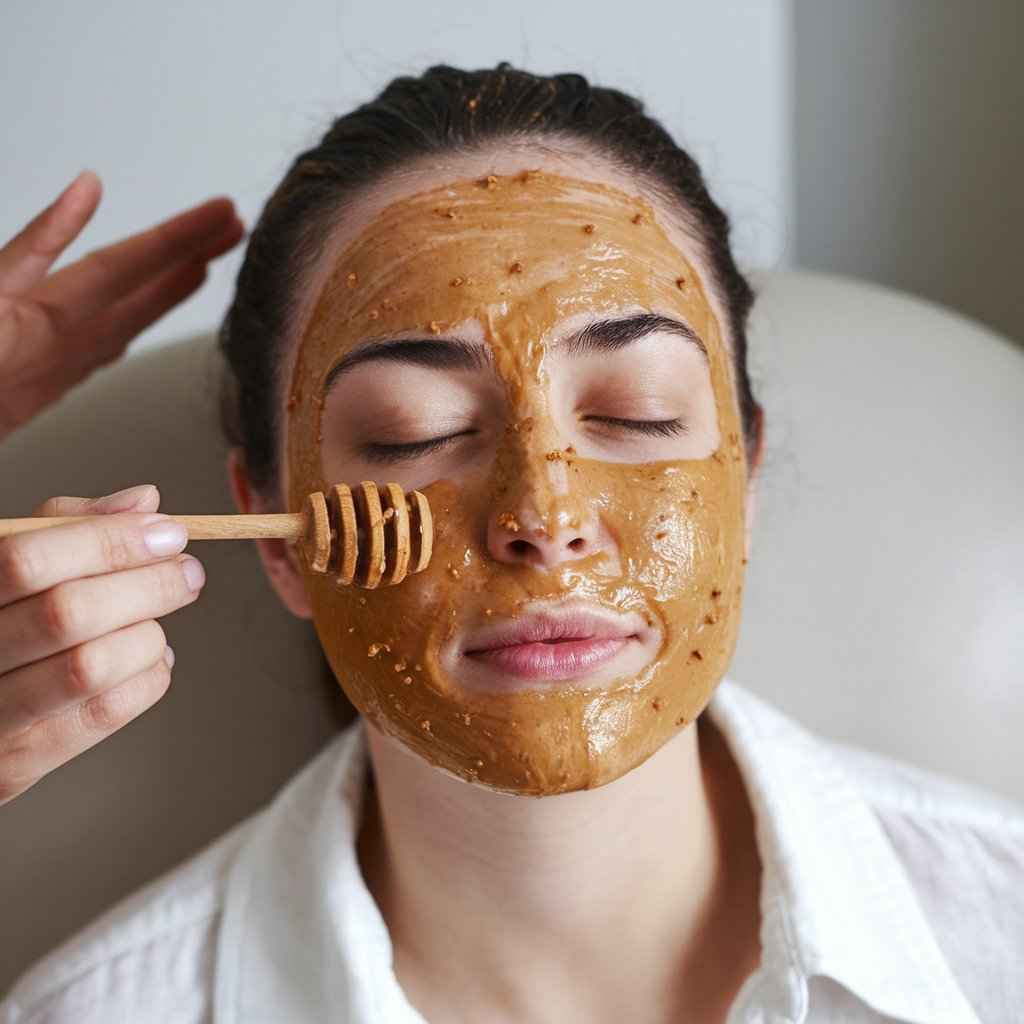
Honey is a natural antibacterial agent, while cinnamon has antimicrobial properties. Together, they are effective in home remedies for pimples, helping to reduce acne-causing bacteria and soothe the skin.
How to Use:
- Mix 2 tablespoons of honey with 1 teaspoon of cinnamon to form a paste.
- Apply the mixture to your face, focusing on the areas with pimples.
- Leave the mask on for 10-15 minutes, then rinse with warm water.
Note: Cinnamon can be irritating to sensitive skin, so perform a patch test before applying this mask to your face.
4. Apple Cider Vinegar
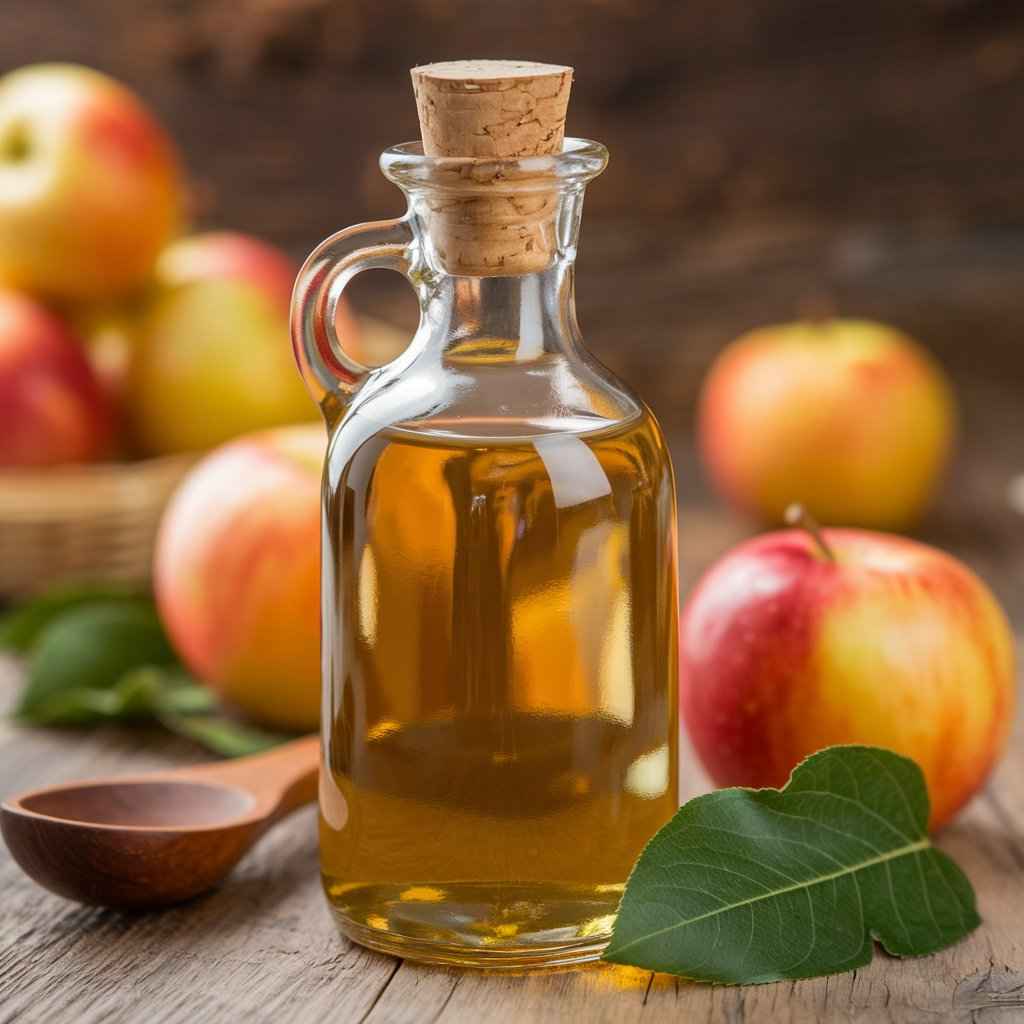
Apple cider vinegar (ACV) contains acetic acid, which has antibacterial and antifungal properties. It is a popular choice in home remedies for pimples, as it can help dry out pimples and restore the skin’s natural pH balance.
How to Use:
- Dilute ACV with water in a 1:3 ratio (one part ACV to three parts water).
- Apply the solution to the pimple with a cotton ball.
- Leave it on for 5-10 minutes, then rinse with cold water.
Caution: ACV is highly acidic, so it should always be diluted and used with caution to avoid skin irritation.
5. Green Tea
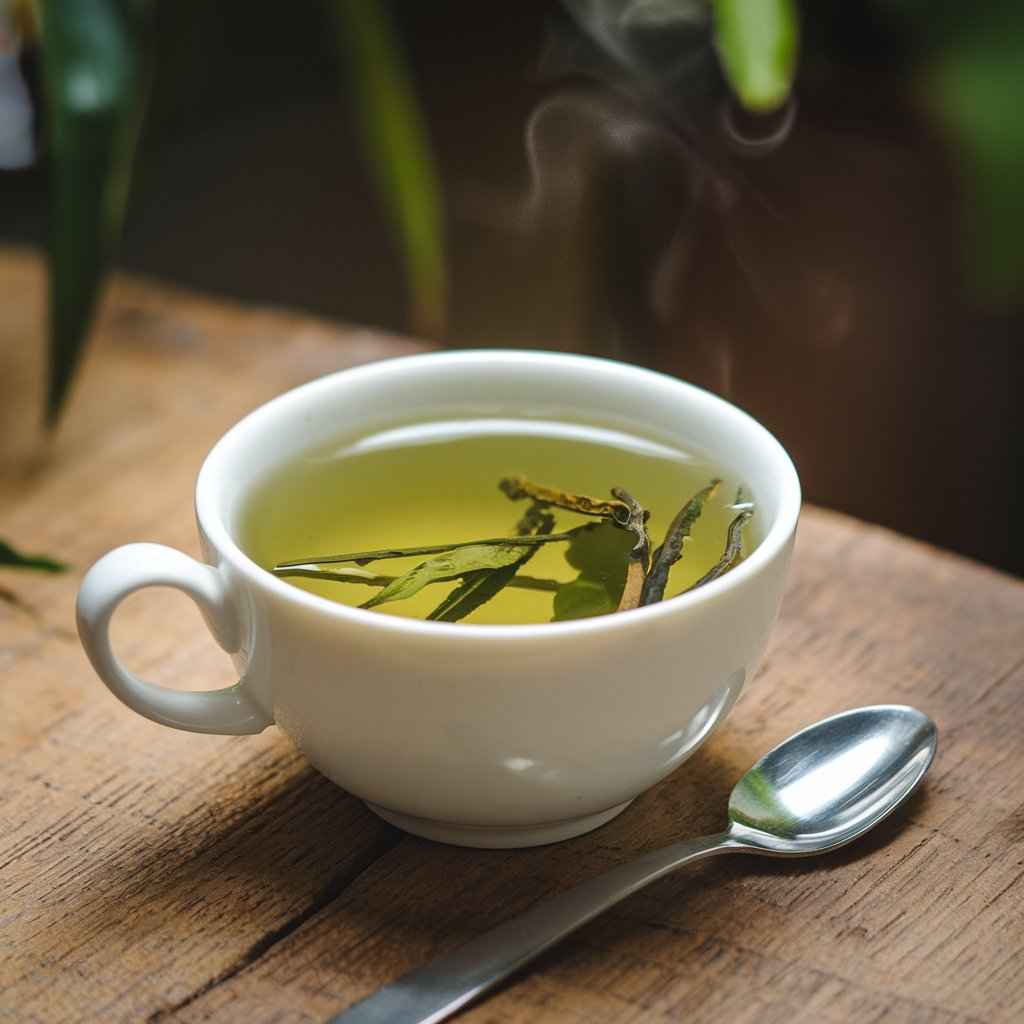
Green tea is rich in antioxidants, particularly epigallocatechin-3-gallate (EGCG), which can reduce inflammation and inhibit the growth of acne-causing bacteria. It is a popular choice in home remedies for pimples.
How to Use:
- Brew a cup of green tea and allow it to cool.
- Use a cotton ball to apply the tea to your face or pour it into a spray bottle and spritz it onto your skin.
- Leave it on for 10-15 minutes, then rinse with cool water.
Tip: You can also use the cooled green tea bags as a compress for inflamed pimples.
6. Ice Cubes
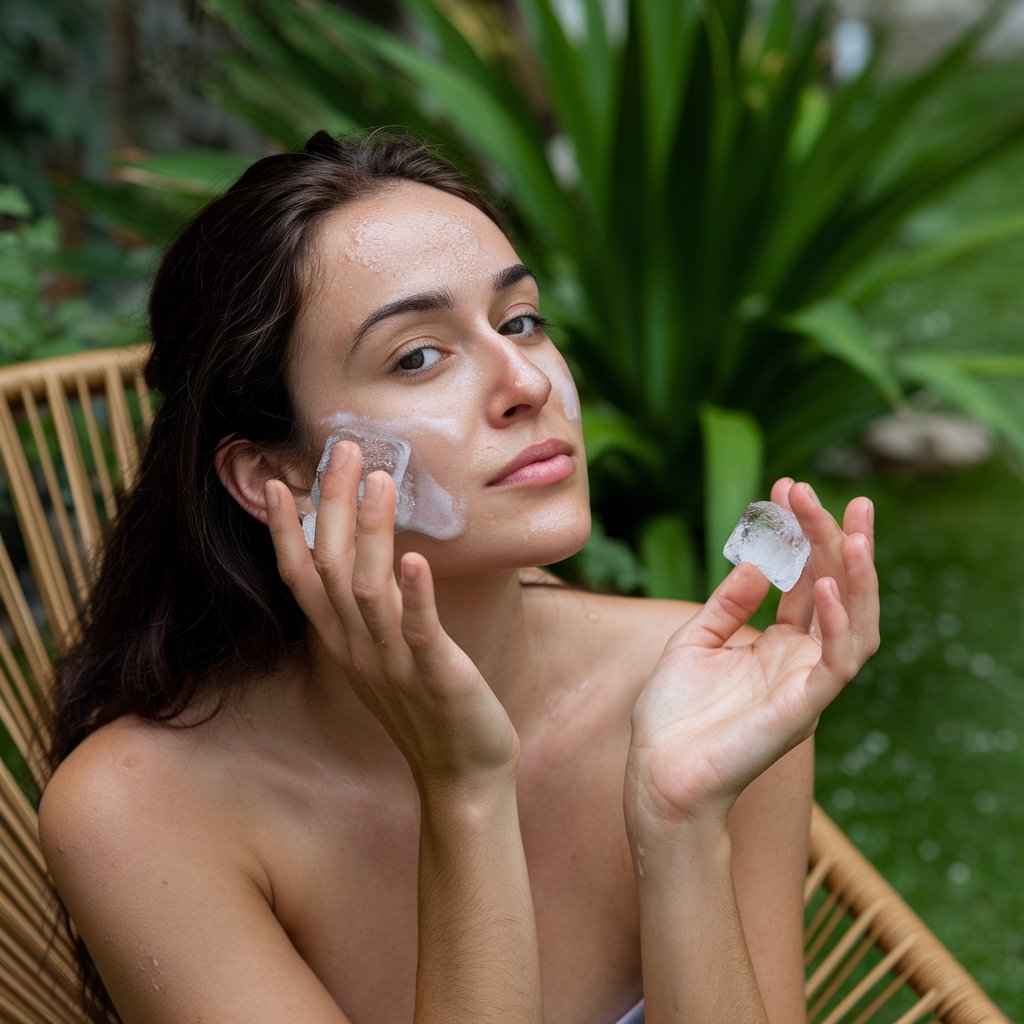
Ice cubes can help reduce the redness, swelling, and pain associated with pimples by constricting the blood vessels. This method is often used in home remedies for pimples.
How to Use:
- Wrap an ice cube in a clean cloth.
- Gently press the wrapped ice cube against the pimple for 1-2 minutes.
- Repeat this process several times a day.
Note: Do not apply ice directly to the skin, as it can cause frostbite or damage the skin barrier.
7. Turmeric Paste
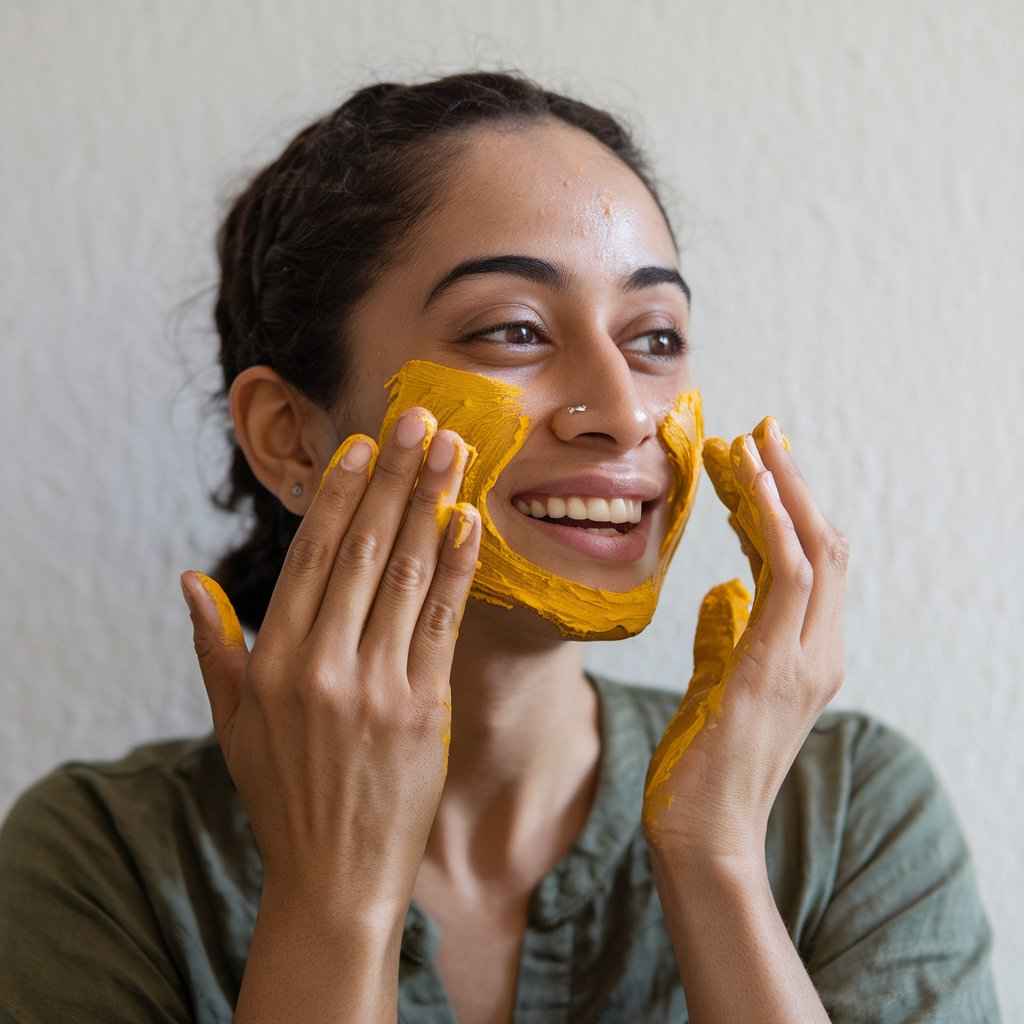
Turmeric has natural anti-inflammatory and antibacterial properties, making it an effective remedy in home remedies for pimples.
How to Use:
- Mix turmeric powder with water or honey to form a paste.
- Apply the paste to the pimple and leave it on for 10-15 minutes.
- Rinse with warm water.
Tip: Turmeric can stain the skin, so use it in moderation and rinse thoroughly.
8. Lemon Juice
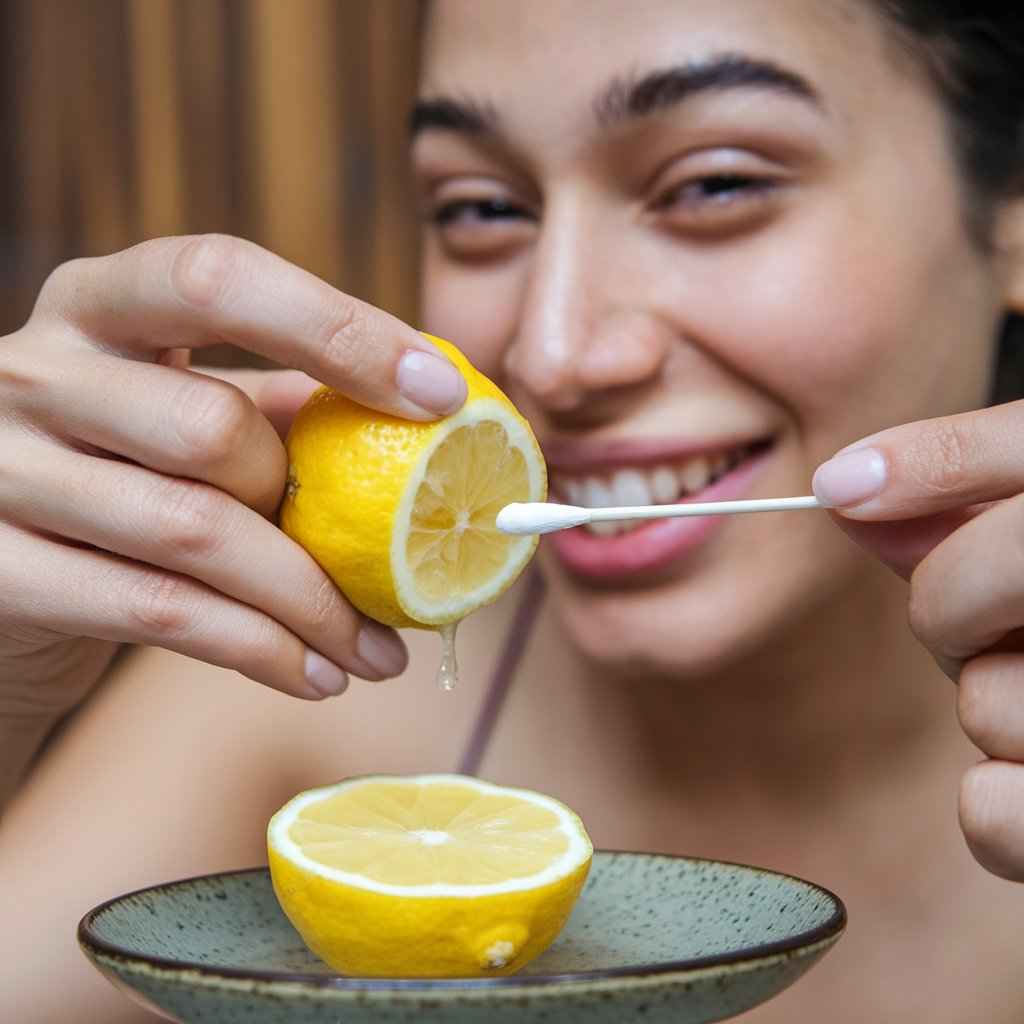
Lemon juice contains citric acid, which can help dry out pimples and lighten acne scars. It also has antibacterial properties that can prevent future breakouts, making it a useful option in home remedies for pimples.
How to Use:
- Squeeze fresh lemon juice and apply it to the pimple using a cotton swab.
- Leave it on for 10 minutes, then rinse with cool water.
Caution: Lemon juice can make your skin more sensitive to sunlight, so it’s best to use this remedy at night and always wear sunscreen during the day.
9. Oatmeal Mask
Oatmeal is known for its soothing properties and can help reduce inflammation and absorb excess oil from the skin, making it a beneficial remedy in home remedies for pimples.
How to Use:
- Cook plain oatmeal and let it cool.
- Apply the oatmeal to your face as a mask, focusing on the pimples.
- Leave it on for 20-30 minutes, then rinse with warm water.
Tip: You can add honey or yoghurt to the oatmeal for additional benefits.
10. Garlic
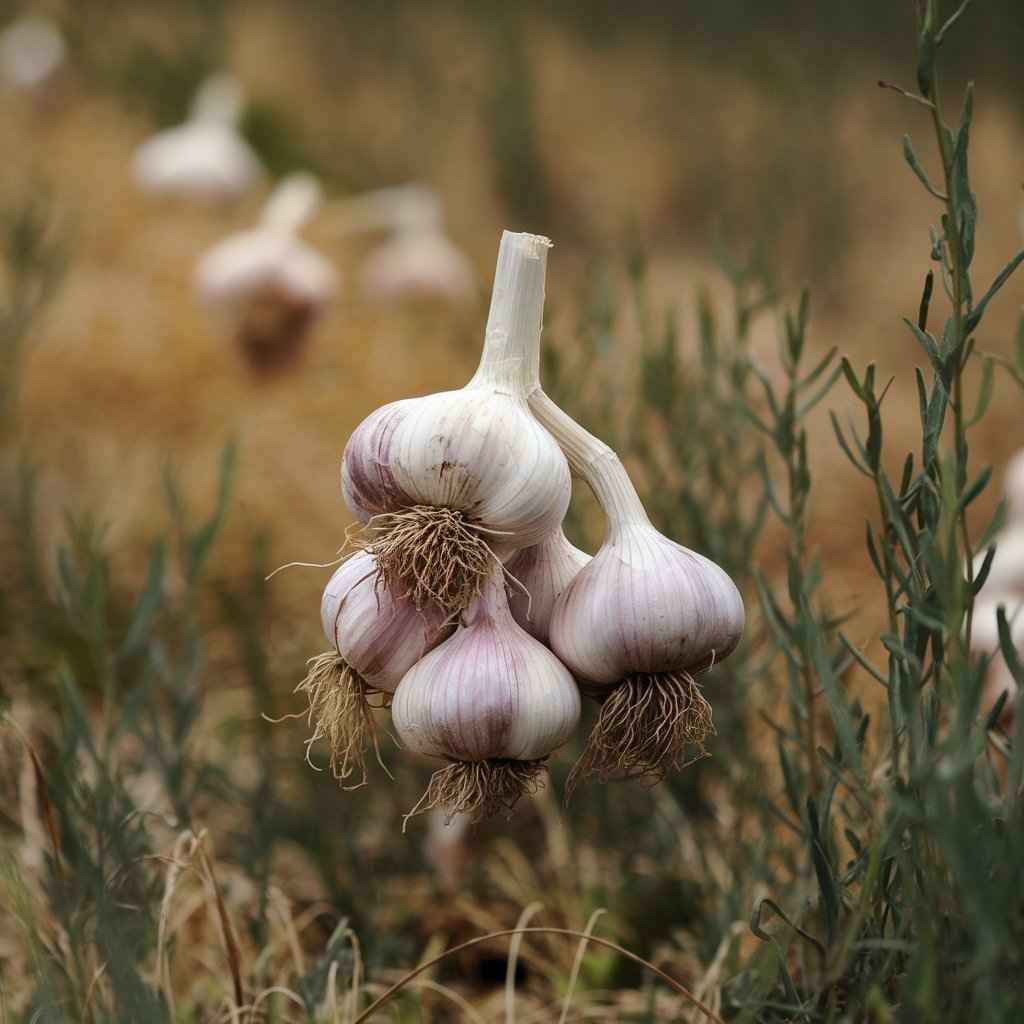
Garlic has strong antimicrobial properties that can help kill acne-causing bacteria and reduce inflammation, making it a potent choice in home remedies for pimples.
How to Use:
- Crush a clove of garlic to extract its juice.
- Apply the juice directly to the pimple.
- Leave it on for 5-10 minutes, then rinse with water.
Caution: Garlic can cause skin irritation, so it’s important to use it sparingly and rinse thoroughly.
Types of Pimples
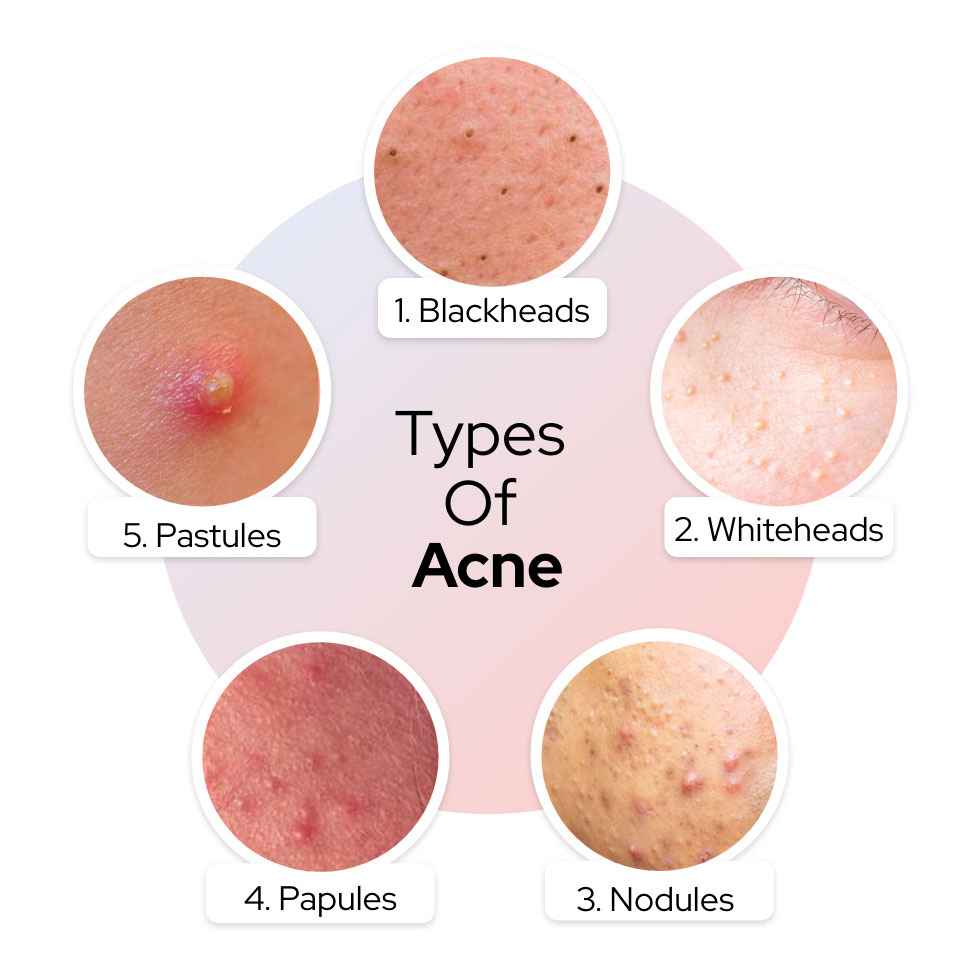
Pimples come in various types, each with distinct characteristics. Understanding these types can help in choosing the right treatment and selecting effective home remedies for pimples. Here are the main types of pimples:
- Whiteheads: These are small, white bumps that appear when a pore is clogged with oil and dead skin cells. They remain under the skin’s surface and are not inflamed.
- Blackheads: These are open comedones where the clogged pore is exposed to air, causing the oil and dead skin cells to oxidize and turn dark. They appear as small, dark spots on the skin.
- Papules: These are small, red, and tender bumps that occur when the clogged pore becomes inflamed. They do not have pus and are usually quite sensitive.
- Pustules: Also known as pimples, these are red bumps with a white or yellowish center filled with pus. They are inflamed and can be painful.
- Nodules: These are large, hard, and painful bumps that form deep within the skin. They are more severe and can be difficult to treat.
Each type of pimple may require different approaches for treatment, and using appropriate home remedies for pimples can be beneficial. Persistent or severe cases often benefit from professional dermatological advice.
When to Visit a Doctor
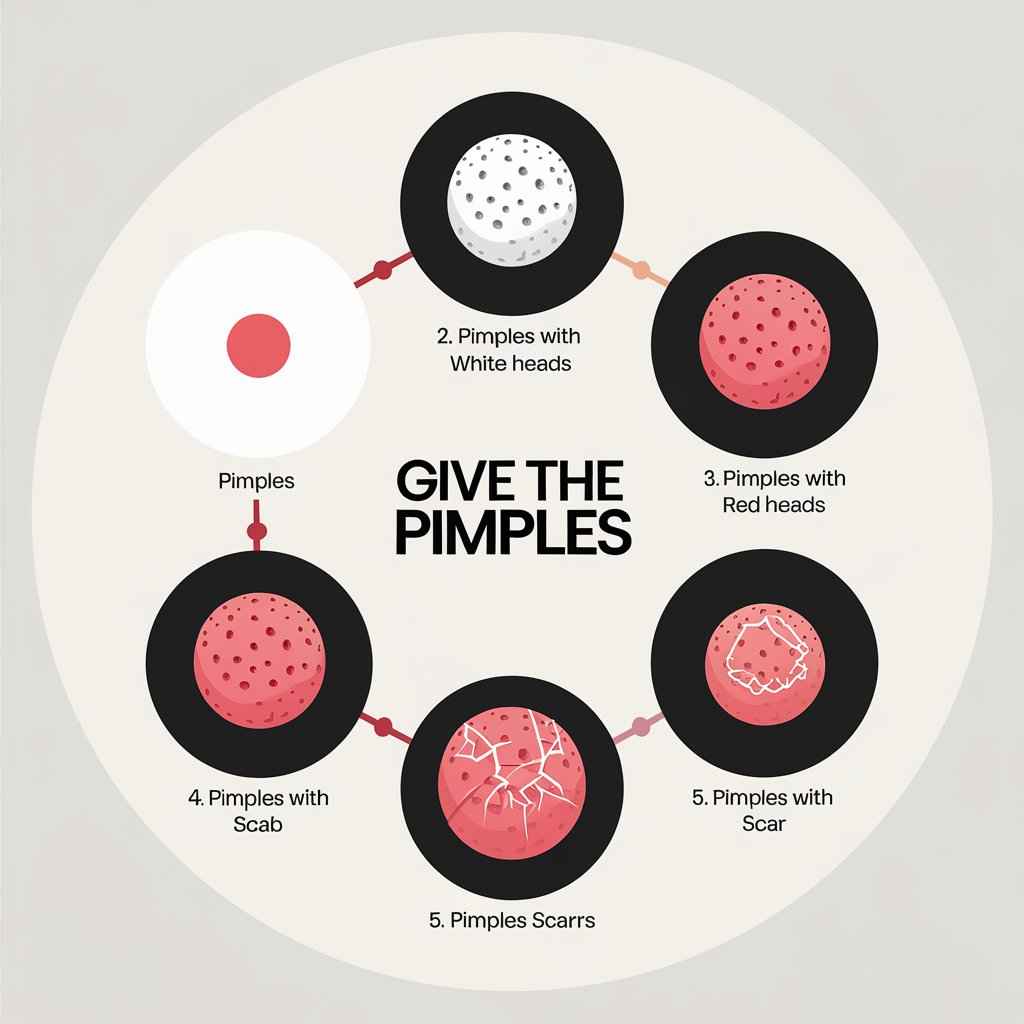
While home remedies for pimples can be effective for mild to moderate cases, there are times when professional medical advice is necessary. Consider visiting a doctor or dermatologist if:
- Persistent Acne: If your pimples do not respond to home remedies for pimples or over-the-counter treatments after several weeks, it may be time to seek professional help.
- Severe Acne: If you have cystic or nodular acne, which are more severe forms of acne that cause deep, painful, and inflamed lesions, a dermatologist can provide stronger treatments that are not available over-the-counter.
- Scarring: If you notice that your pimples are leaving scars, it’s important to get professional treatment to prevent further damage and to explore options for scar reduction.
- Emotional Impact: If your acne is affecting your self-esteem or causing emotional distress, seeking help from a dermatologist can provide both physical and emotional relief.
- Infection: If a pimple becomes very red, swollen, and painful, or if you notice pus or other signs of infection, it’s crucial to see a doctor for appropriate treatment.
Final Thought
While these home remedies for pimples can be effective in reducing pimples and promoting clearer skin, it’s important to remember that everyone’s skin is different. What works for one person may not work for another. Additionally, severe or persistent acne may require professional treatment from a dermatologist.
Incorporating these simple remedies into your skincare routine, along with maintaining a healthy diet, staying hydrated, and managing stress, can help you achieve and maintain a clearer complexion. Always listen to your skin and consult a healthcare professional if you have any concerns.
FAQs
How to remove pimples permanently?
To remove pimples permanently, maintain a consistent skincare routine that includes cleansing, exfoliating, and moisturizing with products suited to your skin type. Use non-comedogenic products, eat a balanced diet, stay hydrated, and manage stress. For persistent or severe acne, consult a dermatologist for personalized treatment, which may include prescription medications or professional procedures.
Are home remedies for pimples effective?
Yes, home remedies for pimples can be effective for mild to moderate cases. They can help reduce inflammation, kill bacteria, and promote healing. However, their effectiveness varies from person to person, and severe or persistent acne may require professional treatment from a dermatologist.
How fast do home treatments for pimples work?
Home treatments for pimples can start showing results within a few days to a week, depending on the severity of the pimples and the specific remedy used. However, for more noticeable improvements, it may take a couple of weeks of consistent use. Keep in mind that results vary from person to person, and patience is key when using natural remedies.

